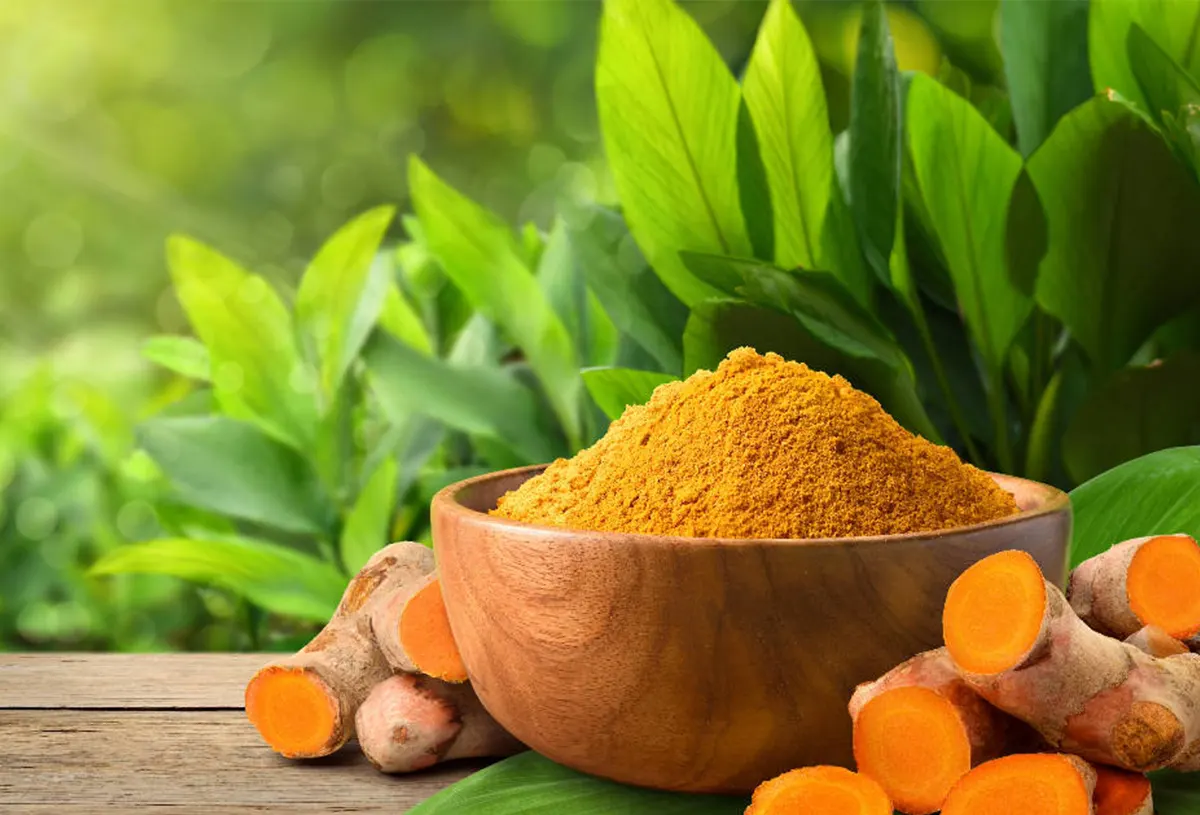For centuries, people around the world have praised Curcuma longa, commonly known as turmeric, for its powerful healing properties. It’s widely available as a ground spice, in supplement form, and in various beauty and skincare products.

Struggling with digestive issues? Try turmeric. Battling a fever? A warm cup of turmeric milk might help. Turmeric has long been a trusted remedy for many everyday ailments. But did you know that this golden spice also works wonders for your skin?
Revered in Indian tradition, Sacred Turmeric is more than just a spice. With its radiant golden hue, it symbolizes the sun and is deeply connected to themes of purity, prosperity, and abundance.
If a busy schedule keeps you from incorporating turmeric into your routine, don’t worry — our De-pigmentation and Skin Rejuvenating Cream brings the benefits of turmeric directly to your skincare regimen.
So, What Is Turmeric?
Turmeric, scientifically known as Curcuma longa, has been a cornerstone of Ayurvedic medicine for over 4,000 years. Revered for its powerful healing properties, it is often referred to as “holy powder.” Derived from the roots of Curcuma zedoaria, a plant native to Southeast Asia, turmeric is considered one of the most potent spices. Its key active compound, curcumin, is a powerful antioxidant with a wide range of research-backed health benefits.

Ayurveda’s View on Turmeric
In Ayurveda, turmeric is used to balance the three doshas — Vata, Pitta, and Kapha — although excessive use may aggravate Vata and Pitta. It is especially beneficial for the rasa and rakta dhatus, which correspond to the plasma and blood in the circulatory system. While modern research on turmeric is vast, we’ve highlighted five significant studies that showcase its most immediate and impactful health benefits.
Fast and Visible Results of Turmeric for Skin
- The Ultimate Solution for Acne

Acne is a common skin issue, particularly among women. Incorrect skin treatments, over-the-counter medications, and certain skincare products can sometimes irritate the skin. In such cases, natural and Ayurvedic products are a better option. One of the most effective acne-fighting ingredients is turmeric. Its antibacterial and anti-inflammatory properties help prevent the spread of bacteria, reducing redness and swelling around blemishes.
2. Achieve your radiant, glowing skin goals.

Is your skin looking dull and lifeless? Do you often rely on makeup to achieve a bright, glowing look? You’re not alone—everyone desires naturally radiant skin. Unfortunately, environmental pollutants and everyday stress can take a toll on your complexion. That’s where turmeric comes in. Known for its anti-inflammatory and antioxidant properties, turmeric helps rejuvenate and refresh the skin. Incorporate turmeric-based soaps, face packs, and face washes into your routine for a natural, daily glow.
3. The ultimate moisturizing solution for dry, thirsty skin.

Did you know turmeric can be a powerful remedy for dry skin? This golden ingredient not only nourishes and deeply moisturizes but also helps accelerate the removal of dead skin cells, leaving your skin soft, smooth, and refreshed.
Dry skin often looks parched and dull, especially during the winter months when dryness tends to worsen. While applying a rich body lotion throughout the day helps, your skin also deserves some extra care. Treat it with a turmeric-infused mask to deeply soften and moisturize, restoring its natural glow and smoothness.
How To Use Turmeric For Skin?
Because turmeric has numerous skin advantages, you may incorporate it into your beauty routine in two simple ways:
- Applying natural turmeric face masks
- Using natural turmeric skincare products
What are the precautions while using turmeric for the skin?
- Turmeric can temporarily colour the skin or leave a yellow residue when applied on the skin.
- Before putting turmeric on your face, apply a dime-sized amount on your forearm and wait 24 to 48 hours to see how you react. If you are allergic to turmeric, do not apply it to your skin.

